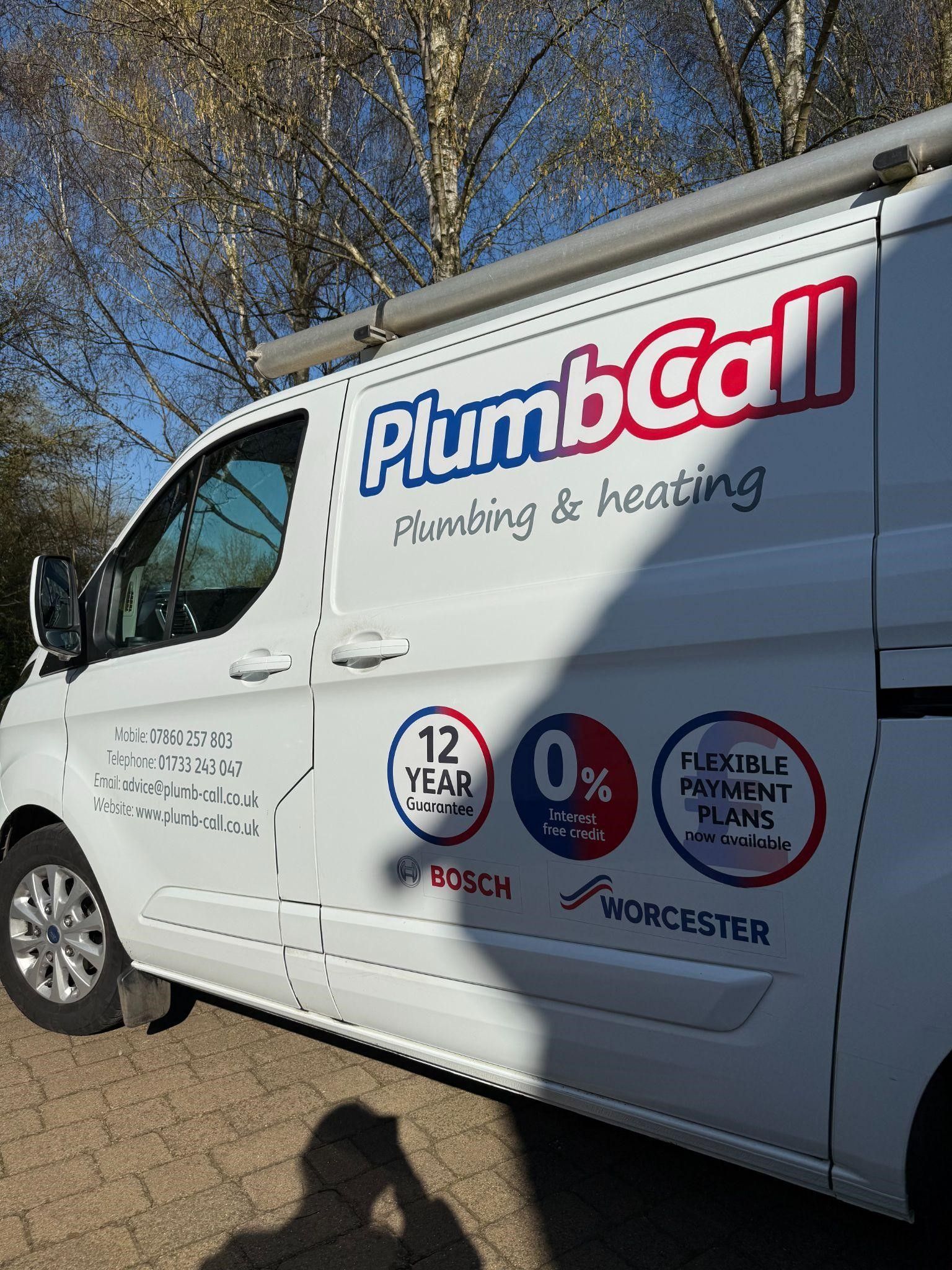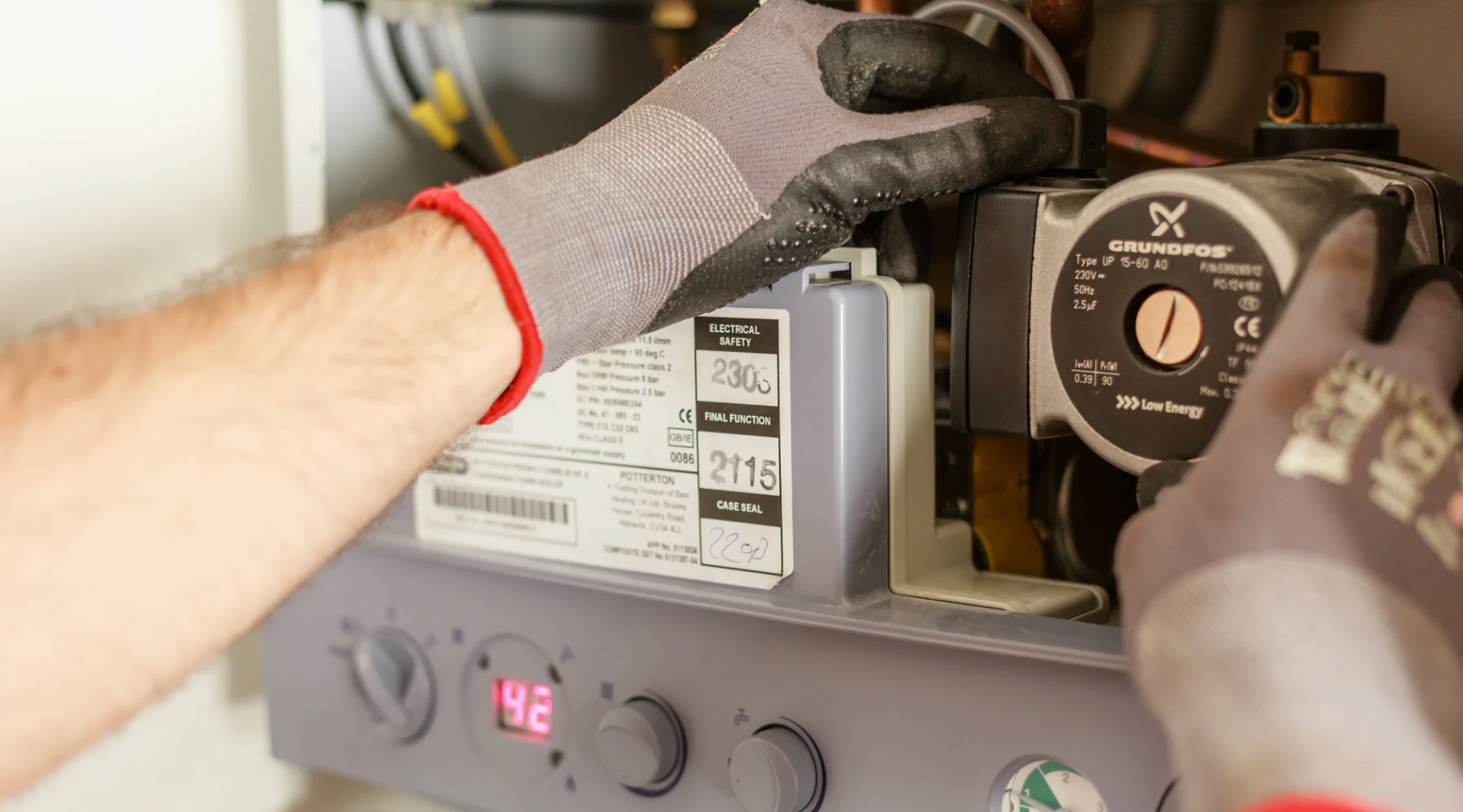Do Energy-Efficient Models Affect the Oil Boiler Replacement Cost in the UK?
Do Energy-Efficient Models Affect the Oil Boiler Replacement Cost in the UK?
In recent years, energy efficiency has become a paramount consideration for homeowners across the United Kingdom. With rising energy costs and increasing environmental awareness, the efficiency of household heating systems is under scrutiny like never before. Oil boilers, a popular choice for central heating used in many UK homes, are no exception to this trend. When it comes to replacing an old, inefficient oil boiler, the cost is a significant concern for homeowners. But do energy-efficient models affect the oil boiler replacement cost in the UK? In this article, we'll delve into this crucial question and provide insights into why it's important to consider energy efficiency in the context of oil boiler replacement.
The Importance of Energy Efficiency in Oil Boilers
The importance of energy efficiency in oil boilers cannot be overstated. In the UK, where a significant portion of households rely on oil-fired heating systems, the energy efficiency of these boilers directly impacts both homeowners and the environment. Energy-efficient oil and gas boilers are designed to burn less fuel while producing more heat, resulting in cost savings for homeowners and a reduced carbon footprint for the country.
When you consider that the UK government has set ambitious targets for reducing carbon emissions and improvingenergy efficiency, it becomes clear why energy-efficient oil boilers are at the forefront of this transition. The replacement of old, inefficient oil boiler systems with their energy-efficient counterparts plays a crucial role in achieving these goals.
How Do Energy-Efficient Models Affect Replacement Costs?
One of the first questions that homeowners often ask when considering an oil boiler replacement is, "How will energy efficiency affect the cost?" Energy-efficient oil boilers may come with a slightly higher upfront purchase price compared to their less efficient counterparts. However, this initial cost difference is often outweighed by the long-term benefits.
Energy-efficient oil boilers use less oil to produce the same amount of heat, which translates into lower heating bills. This reduction in operating costs can significantly offset the initial investment, making energy-efficient models a financially wise choice in the long run. Moreover, some energy-efficient oil-fired boiler models may be eligible for government incentives and grants designed to promote energy efficiency, further reducing the overall cost.
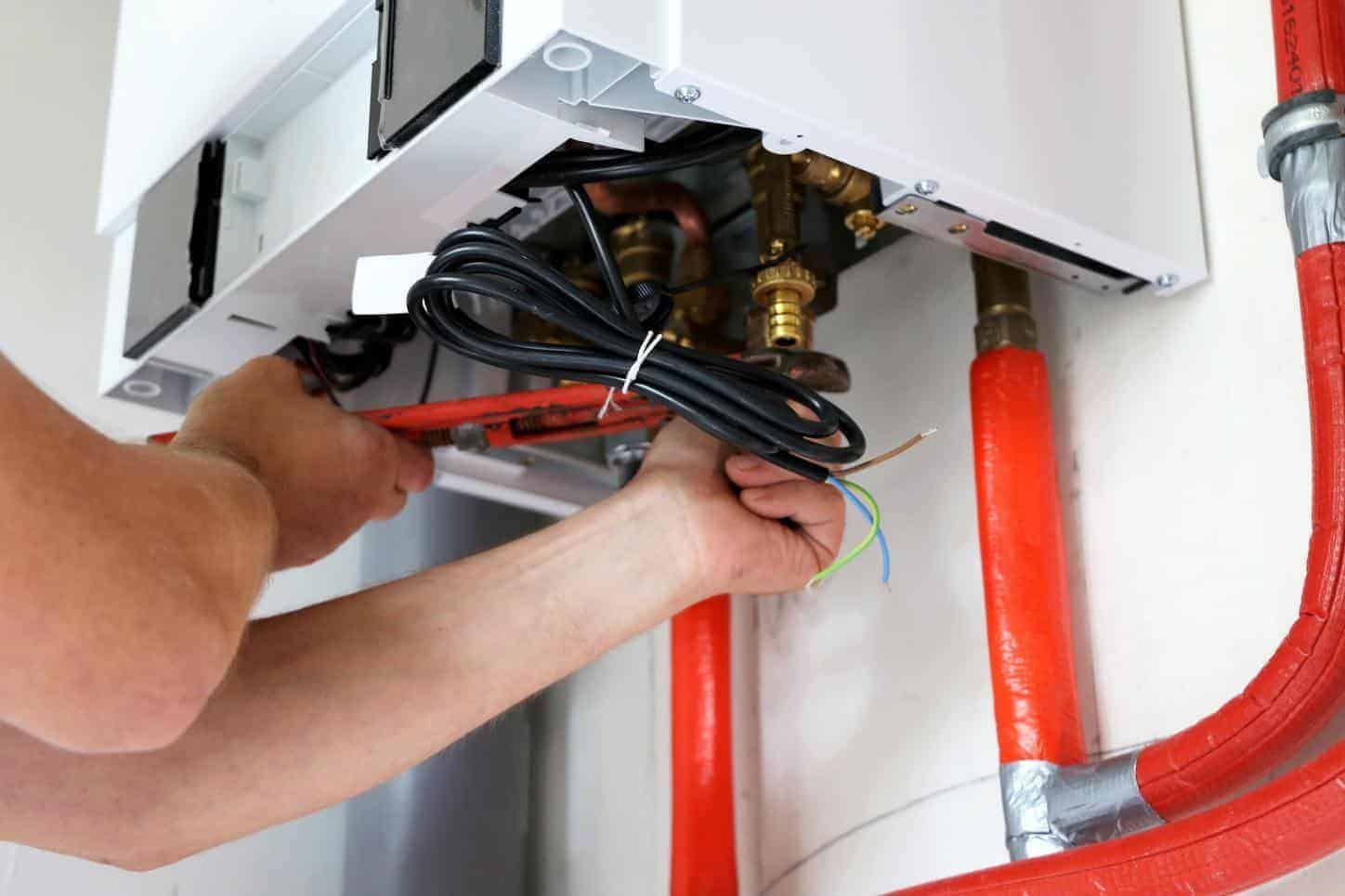
Benefits of Energy-Efficient Oil Boiler Replacements
Lower Heating Bills
One of the most tangible benefits of upgrading to an energy-efficient oil boiler is the reduction in heating bills. These boilers are designed to extract more heat from the same amount of oil, making them significantly more cost-effective to operate.
For example, consider a household that spends £1,000 per year on heating oil with an old, inefficient boiler. By switching to an energy-efficient model, they could reduce their annual heating bill by 20% or more, saving hundreds of pounds each year. Over the lifetime of the boiler, these savings can be substantial.
Reduced Environmental Impact
Energy efficiency isn't just about saving money; it's also about reducing the environmental impact. Oil boilers are a source of carbon emissions, and energy-efficient models help mitigate this by burning less fuel to make hot water and achieve the same heating output.
Let's look at another example: Suppose a typical oil boiler emits 4,000 kg of carbon dioxide (CO2) annually. By upgrading to an energy-efficient model, the annual CO2 emissions could be reduced by 20% or more. This not only helps homeowners feel good about their contribution to environmental conservation but also aligns with the UK's carbon reduction goals.
Factors Affecting Oil Boiler Replacement Costs
The cost of replacing an oil boiler can vary widely depending on several factors. Some of the key factors that affect the replacement cost of conventional boilers include:
- Boiler Type: The choice of boiler type, such as combi, conventional, or system boilers, can impact the cost. Combi boilers are often more affordable, while system boilers may require additional installation work.
- Energy Efficiency Rating: As previously discussed, energy-efficient models may have a higher initial purchase price but offer long-term savings on heating bills.
- Installation Requirements: The complexity of installation, including the need for additional pipework or system upgrades, can significantly affect costs.
- Government Grants and Incentives: Some energy-efficient boilers may be eligible for government grants or incentives, reducing the overall cost of replacement.
- Boiler Warranty: The length and coverage of the warranty can impact the cost. Longer warranties may provide peace of mind but could result in a higher upfront cost.
Choosing the Right Energy-Efficient Oil Boiler
Selecting the right energy-efficient oil boiler for your home is a crucial decision. It involves considering factors like your heating requirements, budget, and available space. It's also essential to choose a reputable manufacturer and installer to ensure a successful and efficient replacement.
Here are some steps to help you make an informed choice:
- Assess Your Heating Needs: Calculate the heating capacity required for your home based on its size, insulation, and specific heating needs.
- Research Energy-Efficient Models: Look for oil boilers with high energy efficiency ratings. The ErP (Energy-related Products) label is a useful reference for assessing efficiency.
- Seek Multiple Quotes: Obtain quotes from several qualified installers to compare prices and services.
- Consider Government Schemes: Check if you are eligible for any government grants or incentives to reduce the replacement cost.
- Review Warranty and After-Sales Support: Ensure the selected boiler comes with a suitable warranty and consider the quality of after-sales support.
- Environmental Considerations: If reducing your carbon footprint is a priority, opt for a boiler with lower emissions and environmental impact.
Exploring the Benefits of Energy-Efficiency in Oil Boilers
Now that we've established the significance of energy efficiency in oil boilers let's delve further into how energy-efficient models affect replacement costs and the compelling advantages they offer to homeowners and the environment.
How Energy-Efficient Models Affect Replacement Costs
While it's true that energy-efficient oil boilers often come with a slightly higher upfront price tag, it's crucial to recognise that this initial investment is a wise choice for the long term. The primary reason for this lies in the operational cost savings these models provide.
Energy-efficient oil boilers are engineered to maximise the heat generated from a given amount of oil. In practical terms, this means that they produce more warmth with less fuel. Consequently, homeowners will experience lower heating bills when using energy-efficient oil boilers. The savings on heating costs can substantially offset the additional upfront expense.
For instance, consider a household that currently spends £1,000 annually on heating oil using an outdated, inefficient boiler. By upgrading to an energy-efficient model, they could potentially reduce their annual heating costs by 20% or more. In real-world terms, this translates into saving hundreds of pounds each year. Over the expected lifespan of the boiler, these accumulated savings can be substantial.
The substantial long-term financial benefits are not the only positive aspect of energy-efficient oil boilers. They also play a pivotal role in reducing the environmental impact.
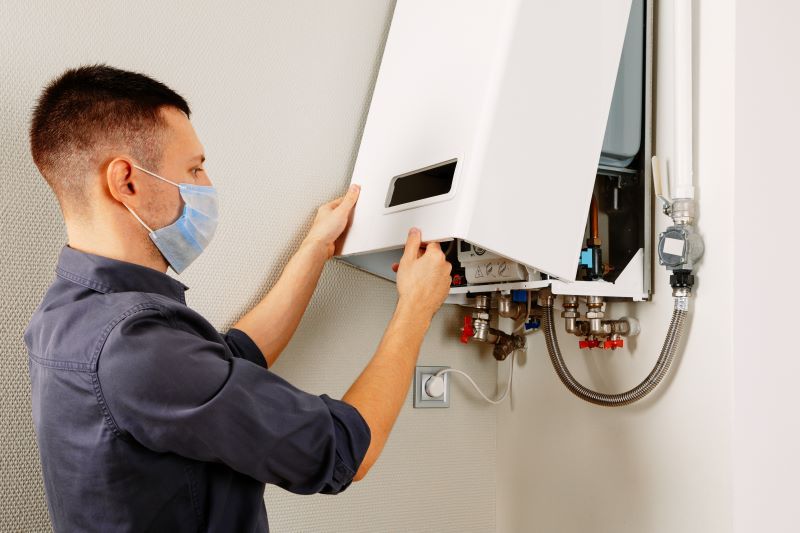
Benefits of Energy-Efficient Oil Boiler Replacements
1. Lower Heating Bills
As mentioned earlier, one of the most immediate and tangible advantages of switching to an energy-efficient oil boiler is the significant reduction in heating costs. These boilers optimise fuel consumption, thus ensuring that homeowners get more warmth for their money.
Consider the following scenario: An old, inefficient boiler in a typical UK household consumes £1,000 worth of heating oil annually. Upgrading to an energy-efficient model could cut this expenditure by 20% or more. Over a decade, this could translate into savings exceeding £2,000. The cumulative effect of reduced heating bills can lead to a substantial return on investment.
2. Reduced Environmental Impact
Energy efficiency is not only about financial gains but also about environmental responsibility. Oil boilers are known sources of carbon emissions, contributing to the UK's overall carbon footprint. Energy-efficient models address this issue by using less fuel to generate the same amount of heat.
Let's explore this further with an example: A standard oil boiler may emit 4,000 kg of carbon dioxide (CO2) per year. By upgrading to an energy-efficient model, it's possible to reduce annual CO2 emissions by 20% or more. This isn't just a matter of environmental pride; it also aligns with the UK's ambitious carbon reduction targets, making a substantial contribution to a greener and more sustainable future.
Factors Affecting Oil Boiler Replacement Costs
While understanding the cost-saving potential and environmental benefits of energy-efficient oil boilers is crucial, it's equally important to consider the factors that can influence the overall replacement costs. By being aware of these key elements, homeowners can make informed decisions when budgeting for a boiler replacement.
- Boiler Type: The type of boiler chosen can have a notable impact on the replacement cost. Combi boilers are often more affordable, making them an attractive choice for those with budget constraints. On the other hand, system boilers may require additional installation work, potentially increasing the overall cost.
- Energy Efficiency Rating: Energy-efficient oil boilers come with higher initial purchase prices due to their advanced technology. However, as discussed earlier, their long-term cost-effectiveness in terms of reduced heating bills often outweighs the initial expense. The ErP (Energy-related Products) label is a useful reference for assessing efficiency.
- Installation Requirements: The complexity of installation can significantly affect costs. If your home's heating system requires additional pipework, system upgrades, or other modifications, these factors need to be considered when budgeting for the replacement.
- Government Grants and Incentives: The UK government offers various schemes and incentives to encourage homeowners to opt for energy-efficient heating solutions. These initiatives can significantly reduce the overall cost of replacement and should be explored when considering a boiler upgrade.
- Boiler Warranty: The length and coverage of the warranty provided with your chosen boiler can impact the replacement cost. A longer warranty may offer greater peace of mind, but it could result in a higher upfront cost.
Choosing the Right Energy-Efficient Oil Boiler
Selecting the appropriate energy-efficient oil boiler for your home is a significant decision that involves careful consideration of various factors.
- Assess Your Heating Needs: Begin by calculating the heating capacity required for your home. Consider factors such as the size of your property, insulation quality, and specific heating needs to determine the right boiler size.
- Research Energy-Efficient Models: Look for oil boilers with high energy efficiency ratings. The ErP label provides valuable information on the efficiency of the model. Opt for a boiler with an excellent rating to maximise savings and reduce your carbon footprint.
- Seek Multiple Quotes: Obtain quotes from several qualified installers. This not only helps you compare prices but also allows you to assess the expertise and professionalism of different companies. Choose an installer with a proven track record of excellence.
- Consider Government Schemes: Investigate whether you are eligible for government grants or incentives aimed at promoting energy efficiency. These schemes can significantly reduce the cost of your oil boiler replacement.
- Review Warranty and After-Sales Support: Evaluate the warranty provided by the boiler manufacturer. Longer warranties offer added security, but it's essential to ensure that the coverage meets your needs. Additionally, assess the quality of after-sales support to guarantee a smooth experience.
By following these steps and considering these factors, you can make an informed decision when choosing an energy-efficient oil boiler for your home. This decision will not only benefit you with lower heating bills but also contribute to a greener, more sustainable future for the UK.
Additional Considerations for Energy-Efficient Oil Boiler Replacements
Having covered the critical aspects of energy efficiency, its impact on replacement costs, and the benefits of energy-efficient oil and gas boilers and replacements, let's explore some additional considerations that can help you make a well-informed decision.
1. System Compatibility
Before finalising your energy-efficient oil boiler choice, it's essential to ensure that your new oil boiler system is compatible with your existing heating setup. Some older homes may require updates to their heating system infrastructure to accommodate modern, energy-efficient models. These adjustments can add to the replacement cost. Therefore, consulting with a qualified heating engineer is advisable to assess the compatibility and any necessary modifications.
2. Maintenance and Servicing Costs
Energy-efficient boilers tend to be more complex than their traditional counterparts. While they offer long-term savings, it's crucial to consider the potential maintenance and servicing costs associated with these advanced systems. Regular maintenance is essential to keep the boiler operating at peak efficiency. These costs can vary depending on the brand and model of your chosen boiler. Factor in annual servicing and maintenance costs when budgeting for your replacement.
3. Extended Warranty Options
When investing in an energy-efficient oil boiler, it's worth exploring extended warranty options. While these warranties can add to the initial cost, they provide added peace of mind and long-term cost savings. Extended warranties often cover the cost of repairs and replacements, which can be substantial if your oil boiler costs or develops issues down the line. Consider whether the added expense of an extended warranty aligns with your budget and the level of assurance you desire.
4. Fuel Costs and Availability
Another important aspect to consider is the availability and cost of heating oil in your area. While energy-efficient oil boilers can reduce your overall fuel consumption, it's crucial to monitor the cost and accessibility of heating oil locally. Additionally, inquire about any trends in fuel pricing, as this can impact your long-term savings. Being aware of regional factors can help you make a more accurate assessment of the economic benefits of an energy-efficient oil boiler.
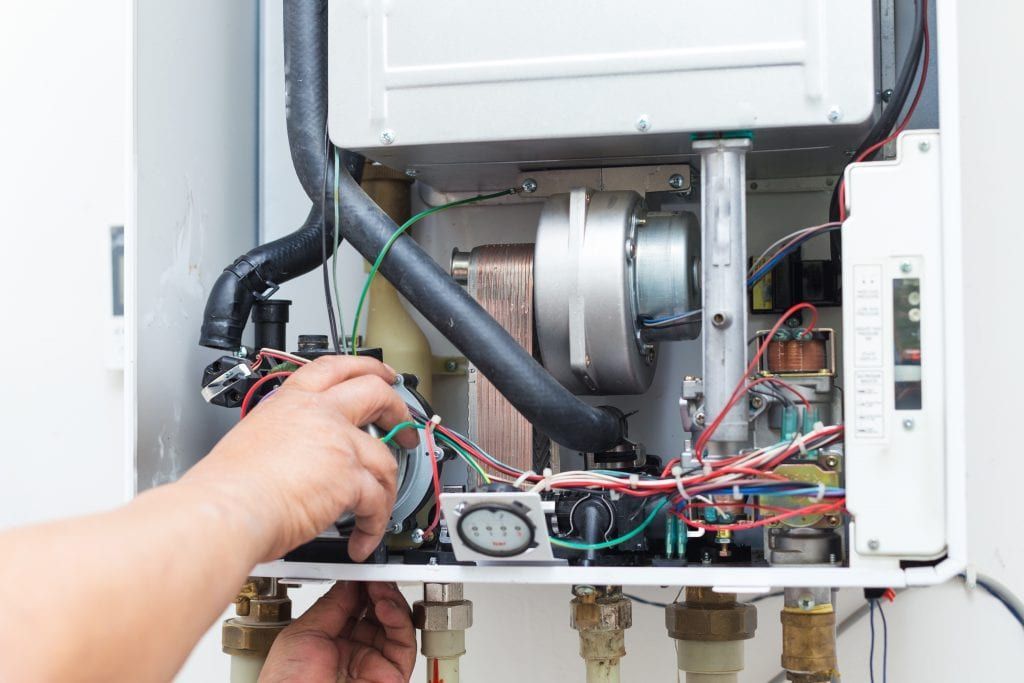
Exploring Fuel Efficiency Ratings
As you dive deeper into the process of selecting an energy-efficient oil boiler for your home, it's important to understand fuel efficiency ratings and how they impact both your heating bills and the environment. These ratings are a key consideration when choosing the right boiler model.
What Are Fuel Efficiency Ratings?
Fuel efficiency ratings for oil boilers are typically expressed as a percentage. This percentage represents the amount of energy from the fuel that the boiler converts into useful heat. The higher the efficiency rating, the more heat is produced from the same quantity of fuel, resulting in lower energy waste.
In the UK, boilers must meet certain energy efficiency standards to be legally sold and installed. The ErP (Energy-related Products) directive, introduced in 2015, categorises boilers based on their energy efficiency, among other factors. Understanding these categories and labels can help you make an informed choice when selecting an energy-efficient oil boiler.
The ErP label provides an energy efficiency rating ranging from A+++ (highest) to G (lowest). When searching for a new boiler, aim for a rating in the A category, as these models are the most energy-efficient. Investing in an A-rated boiler ensures that you are getting a unit that maximises the use of heating oil, which can result in substantial long-term savings.
Comparing Fuel Efficiency Ratings
To illustrate the impact of fuel efficiency ratings, let's compare two oil boilers: one with an A-rated label and another with a lower efficiency rating.
- Boiler A (A-rated): This boiler has an energy efficiency rating of 90%. This means that it converts 90% of the heating oil it consumes into useful heat, while the remaining 10% is lost as waste.
- Boiler B (Lower efficiency): In contrast, a lower-rated boiler might only have an efficiency rating of 70%, meaning that 30% of the heating oil is lost as waste.
Let's assume both boilers are used to heat a hot water cylinder in a home that consumes £1,000 worth of heating oil annually. Here's how their efficiency ratings affect the cost:
- Boiler A (A-rated): With its 90% efficiency rating, it only wastes 10% of the heating oil, resulting in a heating cost of £900 per year.
- Boiler B (Lower efficiency): In contrast, Boiler B wastes 30% of the heating oil, resulting in a heating cost of £1,300 per year.
The difference in heating costs between these two boilers is substantial. Boiler A, with its higher efficiency rating, leads to £400 in annual savings. Over a decade, this amounts to £4,000 in savings compared to Boiler B running costs. This illustrates how selecting a highly efficient oil boiler can pay off in the long run.
Government Grants and Incentives
The UK government is actively promoting energy efficiency and reducing carbon emissions. As a result, there are various grants and incentives available to homeowners who choose energy-efficient heating solutions, including oil boilers. These schemes can significantly offset the replacement cost of existing boilers and make the transition to an energy-efficient boiler more appealing.
One such scheme is the Domestic Renewable Heat Incentive (RHI), which offers financial incentives to homeowners who install renewable heating systems, including energy-efficient oil boilers. Under the RHI, homeowners can receive payments for a period of seven years, helping to recover some of the installation costs and ongoing operational expenses.
In addition to the RHI, local authorities and energy companies may offer their own grants and incentives, so it's worth checking with your regional energy provider to explore the available options.
Professional Installation and Maintenance
A critical aspect of maximising the benefits of an energy-efficient oil boiler is professional installation and ongoing maintenance. Investing in a high-quality oil boiler cost front is only the first step; ensuring that it is correctly installed and properly maintained is essential for long-term performance and efficiency.
Professional Installation
Hiring a qualified heating engineer or installer is crucial when replacing your oil boiler. An experienced professional can assess your home's heating needs, recommend the right oil boiler installation model, and ensure that it is correctly installed. Proper installation is essential to avoid issues such as leaks, inefficiency, or even safety hazards.
Ongoing Maintenance
To keep your energy-efficient oil boiler operating at its best, regular maintenance is necessary. Neglecting maintenance can lead to reduced efficiency, increased operational costs, and a shorter lifespan for your boiler. Regular maintenance includes tasks such as cleaning, inspection, and the replacement of worn-out parts. Consider signing up for a maintenance plan with a reputable heating company to ensure your boiler receives the necessary care.
Energy efficient Boilers
Energy-efficient oil boilers do affect the conventional oil boiler and replacement cost in the UK, but the impact is overwhelmingly positive. While the upfront investment may be slightly higher, the long-term benefits in terms of lower heating bills and reduced environmental impact make energy-efficient models a smart choice for homeowners.
As the UK continues its commitment to reducing carbon emissions and improving energy efficiency, upgrading to energy-efficient oil boilers not only aligns with these goals but also enhances the quality of life for homeowners. When considering an oil boiler replacement, it's essential to factor in services being offered by Plumb Call in terms of Boiler Installation and Repair. Trusting plumb call for your boiler servicing needs is an investment that pays off financially and environmentally, making it a win-win for both homeowners and the planet.
You Might Also Like
